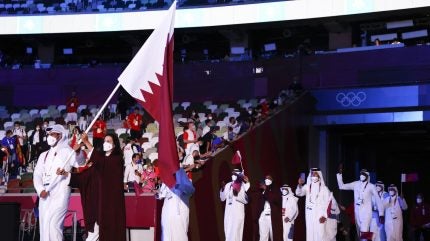
The Olympic and Paralympic Games are the pinnacle of sport, attracting the biggest names from every country around the world. With Los Angeles, USA, and Brisbane, Australia confirmed to host the next two editions of the games in 2028 and 2032, Qatar has stepped up its efforts to claim the rights for the unfilled 2036 event.
Despite being a global event, the games have never arrived in the Middle East or North Africa, more frequently visiting established sports markets in Europe and North America.
Taking the games to new markets opens more opportunities and helps broaden the appeal of the event and better promotes its message of global unity and acceptance. Despite this, the IOC has largely supported established markets, only announcing two new national hosts (China in 2008 and Brazil in 2016) since 1996.

In recent years, Qatar has significantly grown its reputation as a major investor and hub for international sport. The Arab state has built its reputation by staging major events on the sporting calendar on a regular basis. Its popular rights include annual hosting of the Athletics Diamond League (since 2010) and grand prix racing in Formula One (since 2021).
It also has a strong recent history in staging multi-event competitions through the Asian Games (2006 and 2030) and one of the biggest sporting events via the FIFA World Cup in 2022. This recent history evidences the capabilities of the state to host a major sporting event such as the Olympics.
In hosting the most recent FIFA World Cup, Qatar attracted 3.4 million spectators and was able to fill stadiums at 96.3% of capacity throughout the tournament. This resulted in strong financial rewards for FIFA, with the tournament achieving record sales of tickets and hospitality ($929 million) and the tournament achieving substantial sales revenue of $6,314 million.

US Tariffs are shifting - will you react or anticipate?
Don’t let policy changes catch you off guard. Stay proactive with real-time data and expert analysis.
By GlobalDataAn Olympics in Qatar would also likely result in greater commercial interest for the IOC with brands from the region. The 2022 FIFA World Cup attracted major new global partnerships with the likes of QatarEnergy, Qatar National Bank, and Qatar Airways. The latter of these, Qatar Airways, has become a major investor in global sports sponsorship in recent years and currently boasts an active sponsorship portfolio of 16 deals worth an annual value of $350.8 million.
This type of commercial appeal could be a major boost to the IOC’s already extensive commercial value, with no active sponsorship activity with brands from this region. Through the last Olympic cycle, 2021-2024, its commercial revenue stood at $7.7 billion, with its 2033-36 cycle already linked to $4 billion in secured revenue.
In targeting the Olympics, Qatar is looking for the biggest possible platform to promote its national interests. The games eclipse the size and scale of the FIFA World Cup, with the 2024 edition in Paris followed by 5 billion people worldwide, and through its requirements, because of the vast array of sports venues and facilities needed.
In highlighting the size of the games, the Paris Olympics sold over 9.5 million tickets. Conversely, as seen with the FIFA World Cup, the more compact nature of the event could offer a more unique experience for all concerned and offer a better option for the environmental impact of the games, with less travel required. The Qatar Olympic Committee has also already claimed that much of the required infrastructure for the games is secured, alleviating any logistical concerns about hosting such a big event in a small country with a vast desert landscape.
As shown by the 2022 FIFA World Cup, one of the biggest issues in choosing Qatar as a host relates to claims against perceived ‘sportswashing’ by the state. The FIFA World Cup was met with heavy criticism relating to these issues, with the event in Qatar viewed as distracting international audiences from major human rights concerns linked to the state.
Heavy criticism was addressed towards the state’s attitude to migrant workers and its negative attitudes/laws against the LGBTQ+ community, with it illegal to be homosexual in Qatar. As such, choosing Qatar could be seen as going against the moral principles of the Olympics, which champions excellence, respect, and friendship.
Many have already spoken out against Qatar hosting the biggest sporting event on the planet, including several LGBTQ+ charities. Despite these concerns, the growing acceptance of Middle Eastern interest and financial appeal in sport already suggests the IOC will follow the likes of FIFA in turning a blind eye to negative concerns to instead make history in the Middle Eastern region.





